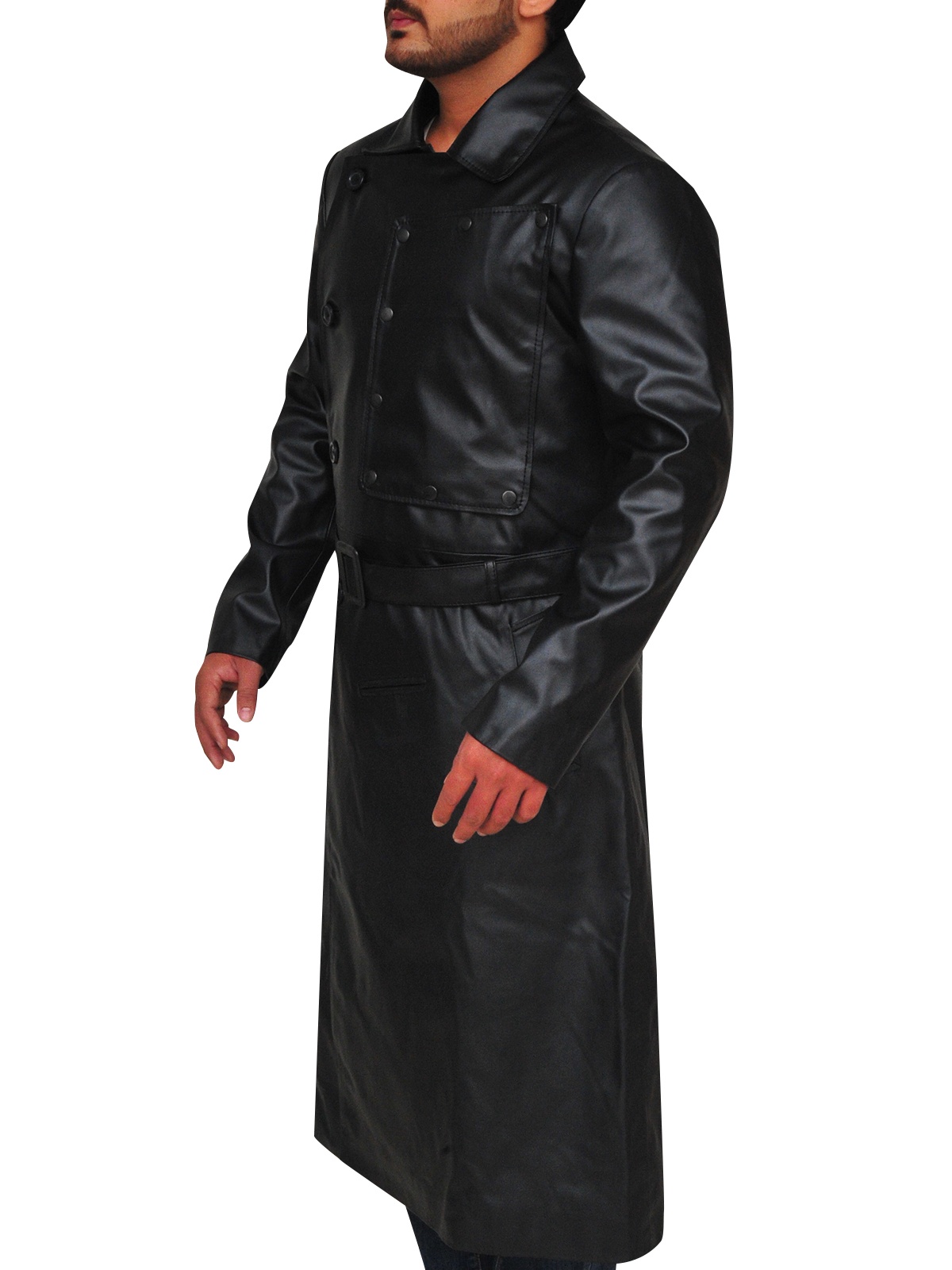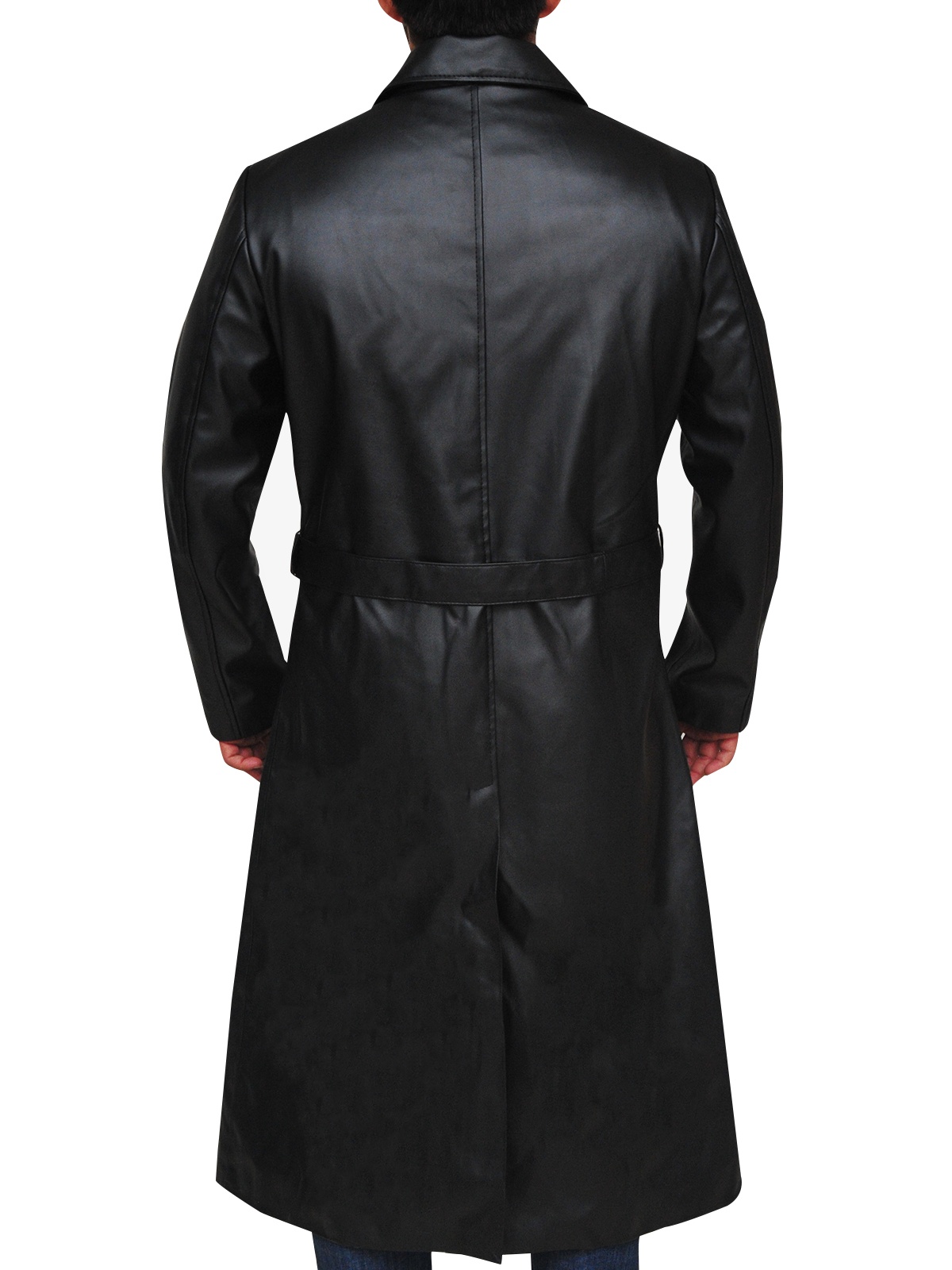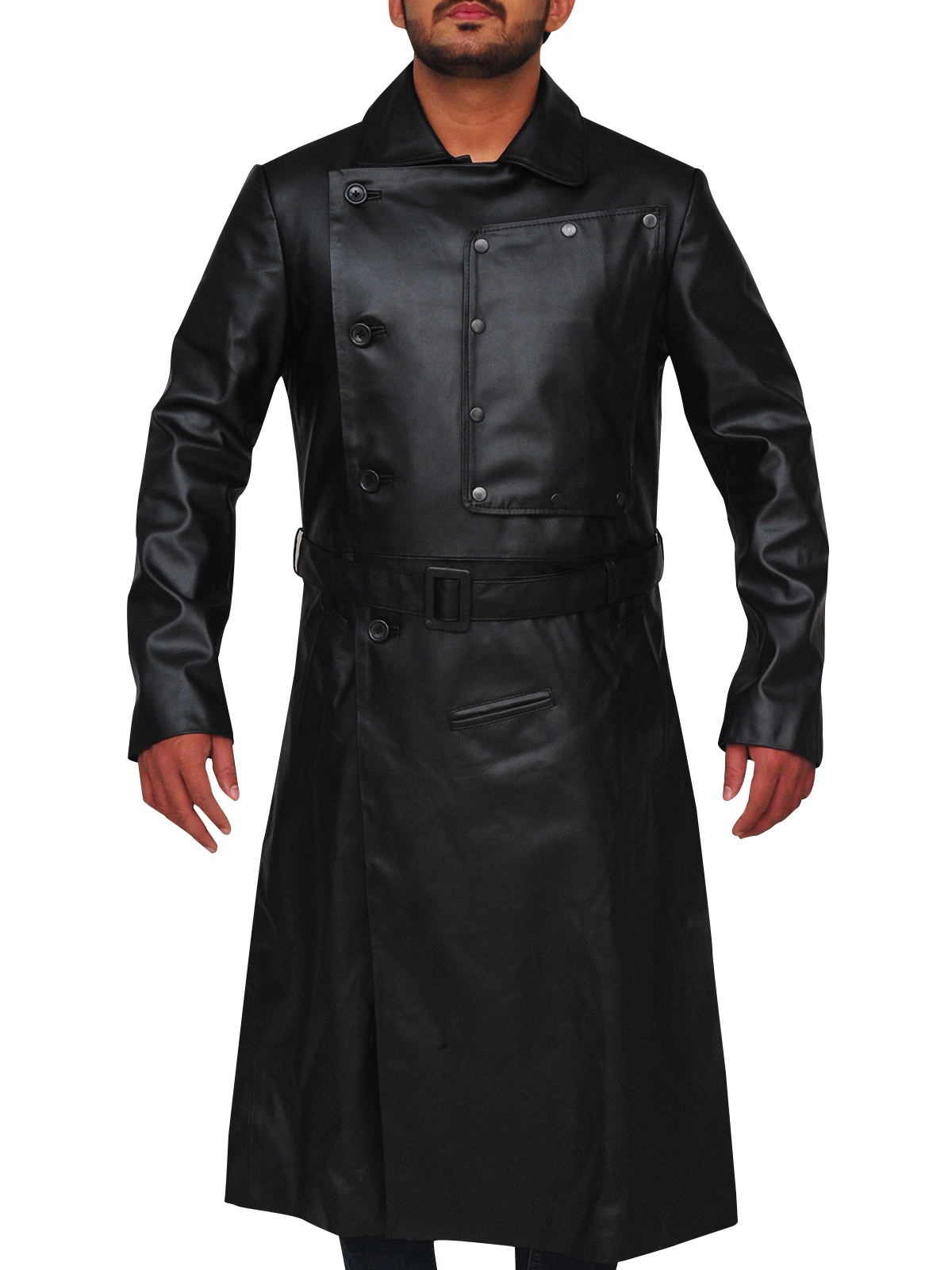Willem Dafoe Grand Budapest Hotel: A Masterclass In Menace
When we think about the memorable faces that bring a film to life, Willem Dafoe almost always comes to mind. He is, you know, a performer who really commits. Having made over one hundred fifty films in his legendary career, Willem Dafoe is internationally respected for bringing versatility, boldness, and dare to some of the most iconic films of our time. His presence in Wes Anderson's visually stunning and delightfully quirky The Grand Budapest Hotel is, in a way, a perfect example of his ability to elevate any role, no matter how brief. It's truly fascinating how he transforms himself for each part he takes on.
This film, a vibrant and intricate story of adventure and friendship, features an ensemble cast, yet Dafoe's contribution, though perhaps not the central focus, certainly leaves a lasting impression. His character, the sinister J.G. Jopling, is a stark contrast to the film's generally whimsical tone, injecting a chilling element of danger that helps to shape the narrative's tension. It’s a performance that, you know, sticks with you long after the credits roll, a testament to his unique acting style.
For fans of Dafoe, seeing him in such a distinct role within Anderson's meticulously crafted world offers a fresh perspective on his range. He brings a particular kind of intensity that feels just right for the part, adding layers to what could have been a simple villain. We will explore the impact of his performance, how it fits into his broader career, and why his portrayal of Jopling remains a significant aspect of The Grand Budapest Hotel's enduring appeal. It's pretty clear he makes every moment count.
- Michael Caine Love Story
- Matthew Mcconaughey Quote Dazed And Confused
- Steve Buscemi Hey Kids
- Woody Harrelson Gin
- Ryan Gosling Notebook House
Table of Contents
- Willem Dafoe: A Brief Biography
- The Grand Budapest Hotel and Wes Anderson's Vision
- J.G. Jopling: The Enforcer
- Connecting Jopling to Dafoe's Filmography
- The Impact of a Smaller Role
- Why Willem Dafoe's Performance Still Resonates
- Frequently Asked Questions About Willem Dafoe in The Grand Budapest Hotel
- Conclusion
Willem Dafoe: A Brief Biography
Willem Dafoe, born William James Dafoe, has carved out a truly remarkable path in the world of cinema. He's known for taking on roles that are, well, often intense and sometimes quite unusual. His career spans decades, showing a commitment to diverse characters across various genres. From independent features to major blockbusters, he consistently brings a unique energy to the screen. He really does seem to pick roles that challenge him, which is quite something.
His acting style is often described as bold and fearless, a quality that allows him to embody complex figures with a striking authenticity. Whether he's playing a hero, a villain, or someone in between, he makes the character his own. This dedication has earned him significant acclaim and a loyal following. For example, his choice to play the part of the vampire Nosferatu in Shadow of the Vampire is Max Schreck (Willem Dafoe), a beastly, hideous man who will appear to the cast and crew only in character (an early example of method acting). That was, you know, a very daring move.
Dafoe's range is pretty impressive. He can be the terrifying antagonist, the quirky sidekick, or the deeply troubled protagonist. This versatility is a hallmark of his long and distinguished career, making him one of the most respected actors working today. It's clear that he approaches each new project with a desire to explore different facets of human experience, which is why his work is so compelling. He really does, you know, give it his all.
- Matthew Mcconaughey Alright Alright Alright Movie
- Jeff Bridges Haircut
- Jk Simmons Farmers Commercial
- Peter Dinklage George Of The Jungle
- Christian Bale Give Me Your Shoes
Personal Details and Bio Data
| Detail | Information |
|---|---|
| Full Name | William James Dafoe |
| Born | July 22, 1955 |
| Birthplace | Appleton, Wisconsin, U.S. |
| Nationality | American |
| Occupation | Actor |
| Active Years | 1980–present |
| Notable Traits | Versatility, intensity, distinctive voice, often plays complex or villainous roles. |
| Career Highlights (examples) | Platoon, Shadow of the Vampire, The Boondock Saints, Spider-Man, The Lighthouse, The Grand Budapest Hotel |
The Grand Budapest Hotel and Wes Anderson's Vision
The Grand Budapest Hotel is, quite simply, a film that stands out. Wes Anderson, as a director, has a very distinct style, and this movie is a prime example of his creative vision. It's a whimsical adventure set in the fictional Republic of Zubrowka, filled with vibrant colors, symmetrical compositions, and a cast of eccentric characters. The story itself is a charming, if sometimes dark, tale of a concierge, Gustave H., and his lobby boy, Zero Moustafa, who become embroiled in a mystery involving a priceless painting and a family fortune. It's, you know, a world all its own.
Anderson's films often feature recurring actors, and Dafoe's inclusion here feels like a natural fit, even if his character is a departure from the usual quirky charm. The film's aesthetic is meticulously crafted, from the period costumes to the intricate set designs, creating a truly immersive experience. It's a movie that, you know, invites you to step into its unique universe and get lost in the story. The visual storytelling is just superb.
The narrative weaves together elements of comedy, mystery, and adventure, all while maintaining a consistent tone that is uniquely Anderson. It's a film that manages to be both lighthearted and deeply moving, often within the same scene. The ensemble cast works together beautifully, each actor contributing to the overall tapestry of the story. And, as we'll see, Dafoe's role, though perhaps smaller than others, is incredibly important to the plot's unfolding tension. It's a very, very clever film.
J.G. Jopling: The Enforcer
In The Grand Budapest Hotel, Willem Dafoe takes on the role of J.G. Jopling, a truly menacing figure. He's the ruthless enforcer for Dmitri Desgoffe-und-Taxis, the son of the wealthy Madame D., whose death sparks the film's central mystery. Jopling is tasked with retrieving a valuable painting and, if necessary, eliminating anyone who stands in his way. He's, you know, not a character you'd want to cross paths with in a dark alley. His presence immediately signals danger.
Jopling is distinct from many of Anderson's more outwardly quirky characters. He's grim, silent for the most part, and utterly dedicated to his violent tasks. His signature look, a long black trench coat and a pair of brass knuckles, makes him instantly recognizable and quite terrifying. He moves with a quiet, predatory grace, and his actions speak far louder than any words he might utter. It's a very, very stark contrast to the film's otherwise colorful and often comical world.
His purpose in the story is clear: to be the embodiment of danger and a relentless obstacle for Gustave H. and Zero. Jopling is the force that propels much of the chase and suspense, adding a much-needed sense of peril to the otherwise charming escapade. He's a character designed to instill fear, and Dafoe, quite frankly, delivers on that perfectly. He really does make you feel the threat.
Dafoe's Portrayal of Menace
Willem Dafoe's portrayal of Jopling is a masterclass in understated menace. He doesn't need long monologues or elaborate backstories to convey the character's threat. Instead, he uses his physical presence, his intense gaze, and a chilling stillness to create a truly unsettling figure. It's a performance that relies heavily on non-verbal cues, and Dafoe, you know, excels at that. He just *looks* dangerous.
His eyes, in particular, convey a cold, unfeeling determination that makes Jopling so effective as a villain. There's a certain emptiness in them that suggests a complete lack of empathy, making his violent acts seem all the more chilling. He moves with a deliberate, almost mechanical precision, like a force of nature rather than a person. This approach, you know, really makes the character memorable, even with limited dialogue.
Dafoe's ability to inhabit such a character, even within the stylized world of Wes Anderson, speaks to his incredible talent. He manages to be genuinely frightening without resorting to over-the-top villainy. It's a subtle, yet powerful, performance that anchors the film's darker moments and reminds the audience that real danger lurks beneath the whimsical surface. He really does bring, you know, a unique kind of dread to the screen.
The Physicality of the Role
A key aspect of Dafoe's Jopling is his physicality. The character is a man of action, and Dafoe embodies this with a lean, almost gaunt frame that suggests both strength and a relentless nature. His movements are precise and economical, never wasted. Whether he's chasing down a suspect or dispatching an unfortunate victim, his actions are swift and brutal. He is, you know, very efficient in his violence.
The use of the brass knuckles becomes almost an extension of his character, a brutal tool that signifies his readiness for violence. Dafoe carries himself with a certain weight, a heavy presence that fills the frame whenever he appears. This physical embodiment of the character makes Jopling feel like a real, tangible threat, despite the film's often fantastical elements. It's a very, very effective way to show his power.
This attention to physical detail is a hallmark of Dafoe's acting. He often transforms his body for roles, whether it's the gaunt intensity of a lighthouse keeper in The Lighthouse or the agile movements of a vigilante. With Willem Dafoe, Robert Pattinson, Valeriia Karaman, Logan Hawkes, two lighthouse keepers try to maintain their sanity while living in isolation. In The Grand Budapest Hotel, his physical portrayal of Jopling is essential to the character's impact, making him a truly formidable adversary. He really does, you know, commit to the whole look and feel.
Connecting Jopling to Dafoe's Filmography
Jopling, in many ways, fits comfortably within Willem Dafoe's extensive filmography, particularly his penchant for playing characters with a dark edge or intense presence. He has a history of portraying figures who operate outside conventional morality or who possess a compelling, sometimes unsettling, power. This role is, you know, another feather in that cap.
Consider his work in films like The Boondock Saints, where with Willem Dafoe, Sean Patrick Flanery, Norman Reedus, David Della Rocco, two Irish Catholic brothers become vigilantes in order to try to wipe out crime. Here, Dafoe plays an eccentric FBI agent who is both brilliant and somewhat unhinged. While vastly different from Jopling, both roles showcase Dafoe's ability to embody characters who are, shall we say, a bit off-kilter and incredibly memorable. He brings a unique flavor to each one.
Even in his more heroic roles, there's often an underlying intensity that sets him apart. His versatility, boldness, and dare are evident across his career, from the compassionate Sergeant Elias in Platoon to the terrifying Green Goblin in Spider-Man. Jopling is a distillation of that menacing side, stripped down to its most essential, brutal form. It's clear he enjoys, you know, exploring these darker aspects of human nature.
His willingness to embrace challenging and often unlikable characters is what makes him such a respected actor. Jopling is not a character designed for audience sympathy, yet Dafoe makes him undeniably compelling through his sheer presence and commitment. This aligns perfectly with his reputation for taking on roles that demand a certain level of fearless dedication. He truly is, you know, a master of his craft.
The Impact of a Smaller Role
It's interesting to note that despite Jopling not being a central protagonist, Willem Dafoe's performance has a disproportionately large impact on The Grand Budapest Hotel. His appearances, though relatively brief, are pivotal to the plot's progression and the film's overall tone. He serves as the primary antagonistic force, driving much of the suspense and action. This is, you know, quite a feat for a supporting character.
Without Jopling, the film would lack a significant source of external conflict and danger. His relentless pursuit of Gustave and Zero provides a constant undercurrent of tension, elevating the stakes of their adventure. He is the tangible threat that prevents the film from becoming merely a whimsical romp. He really does, you know, add a necessary edge to the story.
Dafoe's ability to make such a strong impression with limited screen time is a testament to his acting prowess. Every gesture, every look, every silent moment he's on screen conveys the character's intent and ruthlessness. This efficiency in performance ensures that Jopling is unforgettable, even when he's not actively present. It's a very, very smart piece of casting, actually.
His role also highlights Wes Anderson's skill in casting, placing actors who can make a significant impact even in smaller parts. Dafoe's unique screen presence ensures that Jopling is not just another henchman but a distinct, chilling presence in the film's colorful world. He truly embodies the idea that there are no small parts, only small actors, and Dafoe is certainly not a small actor. He's, you know, pretty much a giant.
Why Willem Dafoe's Performance Still Resonates
Years after its release, Willem Dafoe's portrayal of Jopling in The Grand Budapest Hotel continues to be a talking point among fans. There are several reasons why his performance maintains its grip on the audience's imagination. For one, his character is a stark, almost brutal, contrast to the film's otherwise charming and quirky aesthetic. This juxtaposition, you know, makes him stand out even more.
His unwavering commitment to the role, even in its grimness, is another factor. Dafoe never winks at the camera or plays for laughs; he fully embodies the chilling nature of the character. This seriousness in a largely comedic setting creates a memorable tension that makes his scenes particularly impactful. He's, you know, completely believable as a force of evil.
Furthermore, Jopling represents the darker, more violent underbelly of the world that exists beneath the hotel's charming facade. Dafoe's performance brings this darkness to life in a way that is both terrifying and oddly compelling. He's the embodiment of the real-world dangers that threaten to intrude upon the film's whimsical fantasy. It's a very, very important role for the story's depth.
Ultimately, Dafoe's Jopling is a testament to the power of a well-executed supporting role. He proves that a character doesn't need extensive dialogue or a complex backstory to leave a lasting impression. Sometimes, all it takes is a powerful presence and a fearless commitment to the part, qualities that Willem Dafoe consistently brings to his work. He really does, you know, make every moment count.
Frequently Asked Questions About Willem Dafoe in The Grand Budapest Hotel
Who was Willem Dafoe in Grand Budapest Hotel?
Willem Dafoe played J.G. Jopling in The Grand Budapest Hotel. He was the menacing, leather-clad enforcer working for Dmitri Desgoffe-und-Taxis. His main job was to track down and eliminate anyone who stood in the way of Dmitri's claim to his deceased mother's inheritance, particularly the valuable painting "Boy with Apple." He's, you know, a very dangerous character.
What kind of character did Willem Dafoe play in Grand Budapest Hotel?
Dafoe portrayed a ruthless and silent antagonist. Jopling is a cold-blooded killer, driven by a singular purpose to fulfill his employer's dark commands. He is characterized by his distinctive black trench coat, brass knuckles, and a chillingly calm demeanor, even when committing acts of violence. He's, you know, pretty much the embodiment of menace in the film.
How important was Willem Dafoe's role in Grand Budapest Hotel?
Despite having relatively limited screen time and dialogue, Willem Dafoe's role as Jopling was incredibly important. He served as the primary physical threat and antagonist, driving much of the film's suspense and action sequences. His presence elevated the stakes and added a necessary dark edge to the otherwise whimsical narrative, ensuring the audience felt real danger. He really does, you know, make a big difference to the story's tension.
Conclusion
Willem Dafoe's performance as J.G. Jopling in The Grand Budapest Hotel is a shining example of his unique talent and versatility. He took a supporting role and, you know, made it utterly unforgettable, injecting a chilling dose of menace into Wes Anderson's colorful and whimsical world. His ability to convey so much with so little dialogue, relying instead on his powerful presence and precise physicality, truly sets him apart. It's a testament to his reputation for bringing boldness and dare to every character he embodies.
This role, though brief, perfectly showcases why Dafoe is internationally respected for his contributions to cinema. He's an actor who consistently elevates the material, leaving a lasting impression on audiences, whether he's playing a hero, a villain, or something entirely different. His work in this film, like so many others, reminds us of the profound impact a truly dedicated performer can have. You can explore more about his incredible career and filmography by checking out his IMDb page. Learn more about Willem Dafoe on our site, and link to this page for more film analysis.
- Steve Carell Early Office
- Harrison Ford On The View 2025 Video
- Robert Downey Jr Young
- Peter Dinklage Jack Dorsey
- Tom Hardy Height

Willem Dafoe Grand Budapest Hotel Coat - AirBorne Jacket

Willem Dafoe Grand Budapest Hotel Coat - AirBorne Jacket

Willem Dafoe Grand Budapest Hotel Coat - AirBorne Jacket